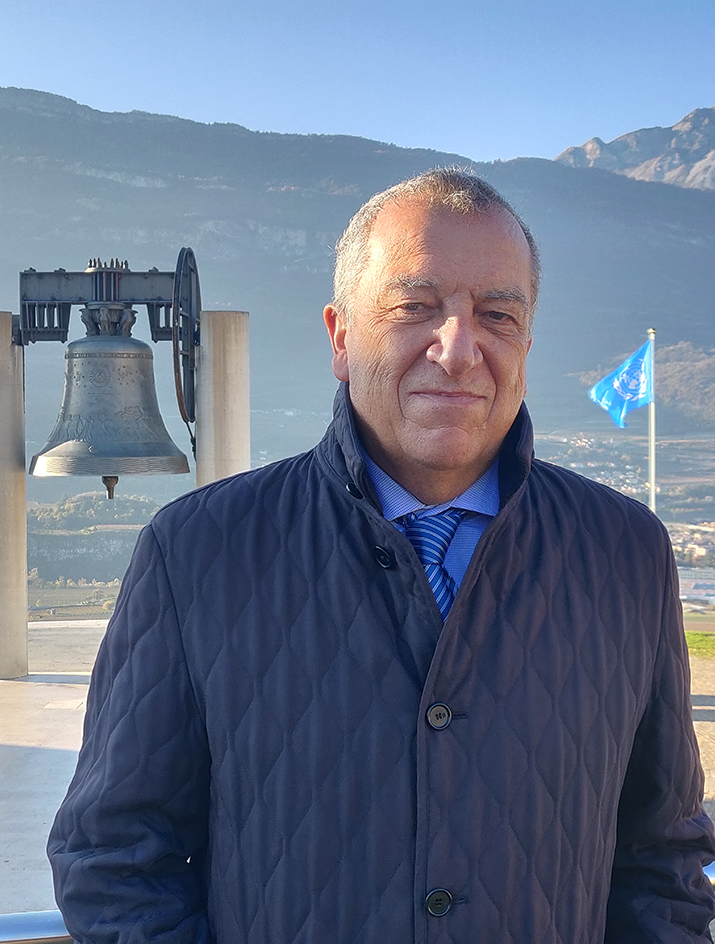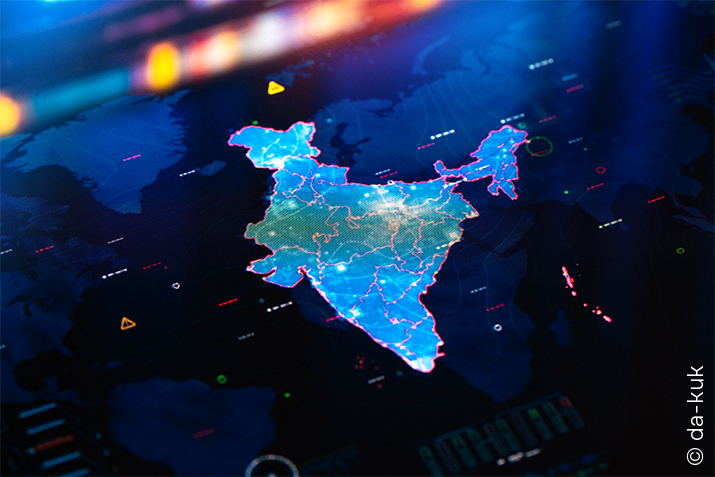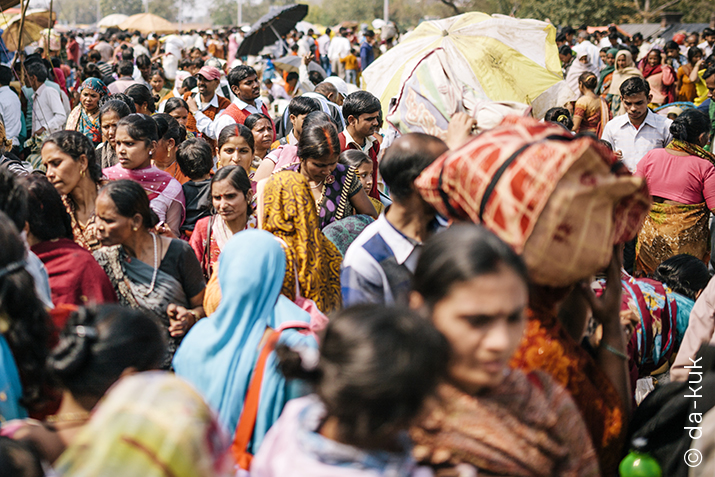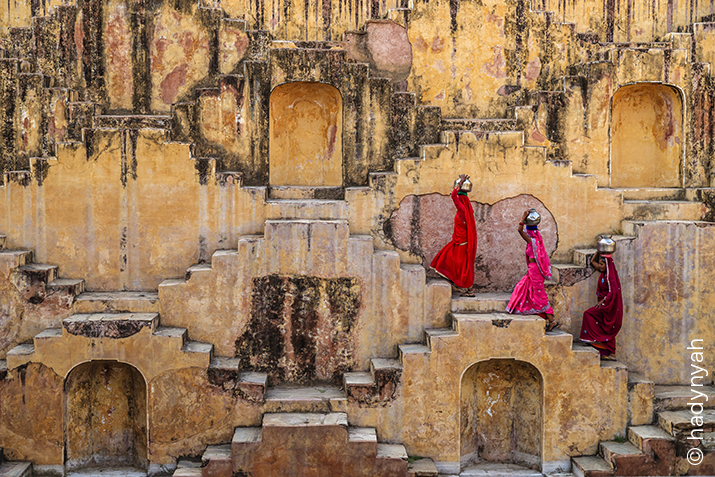Accompanied by sincere wishes for the new year, we wish to focus our readers’ attention on some considerations regarding a “giant” of the current geo-political landscape, India. As is well known, the country achieved independence only in 1947 at the conclusion of a path, led by Mahatma Gandhi, which to this day has remained unequalled as an example of a political result that is both radical (separation from a colonizer) and the result of an almost entirely non-violent process.
Three quarters of a century after this historic event, the inclusion of India among the “heavyweights” of world membership takes on the features of an achievement earned, on the basis of the following characteristics: second place in terms of population, which becomes the first if we limit the ranking to democratic systems; seventh for territorial extension; fifth in overall economic ranking; second among the fastest growing countries, with an extraordinary 7 percent compared to the previous year. On top of that the availability of nuclear weapons, acquired in the 1990s, following a protracted phase of experimentation.
After obtaining independence, India identified some fundamental strategic choices and carried them forward with perseverance and determination: the development of the internal economy, and with it the attempt to correct the major weaknesses intrinsic to its system, i.e., very strong social inequality and a female condition among the most disadvantaged;; active defence of the national territory from threats from neighbouring states (potential or otherwise) and, finally, the affirmation of its own, recognized leadership in the region, also obtained by making military troops available to numerous peacekeeping missions of the United Nations. The constant concern associated with the presence of particularly fierce rival powers in the area, such as the British Empire until the Second World War and, from then to today, the People's Republic of China (PRC) has certainly contributed to the pursuit of these objectives.
India is the second fastest growing country and has availability of nuclear weapons
In carrying out this approach, Delhi has pursued a policy of equidistance from the opposing blocks for many decades, distinguishing itself in the international arena for the "visionary" work of the then prime minister Javaharial Nehru, one of the founders in 1961 of the movement of «non-aligned» countries, a heterogeneous group of like-minded people who in the meantime have reached the considerable number of 120 members.
More recently, and without renouncing the traditional status of neutrality, India seems to have started a slow but constant conversion towards positions that could be defined as "pro-Western", starting with the most politically sensitive case of the moment, that of Ukraine.
In fact, if Dheli has never adhered to the resolutions condemning Russian aggression at the United Nations (choosing the line of abstention), it has not opposed the positions taken in other multilateral forums, which are very critical of President Putin. Such was the case of the G-20 summit in Bali, preceded - a few weeks earlier - by the summit in Samarkand of the Shanghai Cooperation Organization, a regional multilateral body to which Delhi attaches marked strategic importance. On that occasion an interview with Prime Minister Narendra Modi had also received great prominence in the media. The central passage is as follows: «In the presence of profound emergencies in relation to food, climate and energy needs as well as complex industrial transitions, this is certainly not the time for war. More than having to deal with the consequences of the devastation, we need to focus on concluding a peace pact».
Political analysts deemed this a decidedly innovative language, considering India's dependence on the Russian Federation not only for the supply of equipment and weapon systems, but also for the vital political-military support, a legacy of the Soviet era, which was granted by Moscow on several occasions in moments of acute crisis (which resulted in armed conflicts with both the PRC and Pakistan). In this context, it also appears significant that Delhi did not intend to follow Moscow and Beijing in the vote against the expulsion of Iran adopted by the special UN Commission on the Status of Women at the beginning of December.
Continuing with the list, India has, for some years, been participating in the Quad, the informal quadrilateral body also made up of the USA, Japan and Australia which aims to maintain a free, open and peaceful Indo-Pacific geographical area. If it seems understandable that Delhi has, on several occasions, refused to recognize the new entity as “Asian NATO” for reasons of expediency and good neighbourliness towards Beijing in particular, it does not however appear less convinced in relation to its participation in the innovative security structure.
Prime Minister Modi is a figure in which traits of the nationalist coexist with those of the statesman who appreciates the advantages of international cooperation
At this point we cannot fail to make a comment, albeit succinct, on Prime Minister Modi, leader of the People's Party (Bharatiya Janata Party / BJP), with a long experience as governor of the state of Gujarat and, nationally, in office since 2014 with re-election in 2019. He is, undoubtedly, a charismatic figure, in which traits of the convinced nationalist (summarized by the keyword Hindutna) coexist with those of the statesman who is able to appreciate the advantages of international cooperation and has a clear idea of the geo-strategic interests of the subcontinent. Particularly significant were the openings he promoted towards the United States, both on a political level («India and the US are natural allies») and with regard to commerce and direct investment, reciprocated by Washington with the recognition of India's coveted status of global player. With a significant percentage of consensus currently unmatched among democratic nations (77 percent of voters) he seems to be heading, without any particular fears, towards a new appointment in 2024 which would bring him a third term as prime minister.
In conclusion, it is necessary to acknowledge the ruling class and the diplomacy of Delhi for having prudently and gradually initiated that “change of pace” in this first part of the century which was necessary both to profitably accompany the rapid changes that have taken place in the geopolitical context of reference, the Indo-Pacific area, and to ensure the Indian nation and its one and a half billion inhabitants a leading role in the years to come.
A mixture of assertiveness and moderation will also have to be used for the consolidation, in the sense of “peaceful coexistence”, of relations with the People’s Republic of China, a neighbour which from its numbers (GDP six times higher, defence expenditure three times greater) has a tendency to impose the attitude of arrogant superiority olso towards Delhi as is held towards all the other countries in the area. In the presence of territorial claims (Himalayan region) that remain open, the repercussions of a conflict involving the two most populous nations on the planet would in fact open a vulnerability that is probably unbridgeable in the current, and already precarious, system of international relations.
Reggente Marco Marsilli, Foundation President









